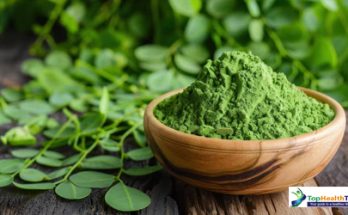Soy protein, derived from soybeans, has become a nutritional powerhouse and staple for health-conscious individuals. It offers numerous health benefits and is especially popular among vegetarians, vegans, and those looking to add more plant-based protein to their diets. Whether for heart health, muscle building, or weight management, soy protein is a versatile food with a wide range of uses.
In this article, we’ll explore:
- The nutritional profile of soy protein
- Top health benefits
- How to incorporate it into your diet
- Common myths and concerns
- A FAQ section answering popular questions about soy protein
Let’s dive in and understand why soy protein has earned its place as a global superfood.
What is Soy Protein?
Soy protein is extracted from soybeans, a type of legume that has been a staple in Asian diets for thousands of years. It is one of the few plant-based proteins classified as a complete protein, meaning it contains all nine essential amino acids that your body cannot produce on its own.
Types of Soy Protein
There are several forms of soy protein available, each with different nutritional profiles and uses:
- Soy Protein Isolate: A highly refined form of soy with about 90% protein content, often used in protein powders and shakes.
- Soy Protein Concentrate: Contains about 70% protein and is used in snack bars, cereals, and baked goods.
- Textured Soy Protein (TSP): A byproduct of soy flour with a meat-like texture, often used as a meat substitute.
Nutritional Profile of Soy Protein
Soy protein offers an impressive nutritional profile. Below is the nutritional breakdown based on data from the USDA:
| Nutrient | Amount per 100g | % Daily Value (DV) |
|---|---|---|
| Calories | 335 kcal | 17% |
| Protein | 80 g | 160% |
| Fat | 1.0 g | 1% |
| Carbohydrates | 9.6 g | 3% |
| Fiber | 7.5 g | 30% |
| Calcium | 250 mg | 25% |
| Iron | 15 mg | 83% |
| Magnesium | 280 mg | 70% |
| Potassium | 85 mg | 2% |
| Vitamin B12 | 0 mcg | 0% |
Key Takeaway: Soy protein is low in fat, high in protein, and packed with important nutrients like calcium, iron, and magnesium, making it an ideal food for muscle growth, bone health, and overall wellness.
Health Benefits of Soy Protein
Soy protein is well-studied for its wide range of health benefits. Here’s why it deserves a place in your diet:

1. Supports Muscle Growth and Repair
Soy protein is rich in essential amino acids, which makes it an effective protein for muscle growth. Studies show that soy protein is just as effective as whey protein in promoting muscle gain, especially when combined with resistance training.
“Consuming soy protein after a workout can help repair muscle tissues and enhance recovery.”
How to use: Incorporate soy protein powder into your post-workout shakes for an easy protein boost.
2. Promotes Heart Health
One of the standout benefits of soy protein is its role in lowering cholesterol. The FDA has approved claims that 25 grams of soy protein daily, as part of a low-cholesterol diet, can reduce the risk of heart disease. Soy protein helps lower LDL (bad) cholesterol while maintaining HDL (good) cholesterol.
Scientific Backing:
According to a study published in the Journal of Nutrition, individuals who consumed soy protein experienced a 10% reduction in LDL cholesterol levels compared to those who consumed animal proteins.
3. Aids in Weight Management
Soy protein is an excellent addition to any weight management program. Its high protein and fiber content helps promote feelings of fullness, reducing overall calorie intake. Studies have found that diets rich in soy protein can support weight loss by curbing hunger and increasing satiety.
Pro Tip:
For weight management, consider consuming soy-based snacks, like soy nuts or edamame.
4. Improves Bone Health
Soy protein is rich in calcium and magnesium, which are essential for maintaining bone density. It has been shown to reduce the risk of osteoporosis, particularly in postmenopausal women. The isoflavones in soy also contribute to better bone health by reducing bone loss.
“Regular consumption of soy protein may help prevent osteoporosis in aging individuals.”
5. Helps Manage Blood Sugar Levels
Soy protein has a low glycemic index, meaning it helps regulate blood sugar levels and prevent spikes in glucose. This makes it an excellent food for people with diabetes or those at risk of developing type 2 diabetes. The combination of protein and fiber slows down glucose absorption, making soy a stabilizing food for blood sugar control.
Tip:
Pair soy protein with high-fiber vegetables like broccoli for an even better blood sugar response.
6. Reduces Menopausal Symptoms
Soy is known for its phytoestrogens, plant compounds that mimic estrogen in the body. These compounds can help balance hormones and reduce menopausal symptoms like hot flashes and night sweats. Research published in the Menopause Journal showed that women who consumed soy isoflavones experienced a significant reduction in the severity and frequency of hot flashes.
How to use:
Include tofu or tempeh in your meals to naturally boost your phytoestrogen intake.
Common Myths and Concerns About Soy Protein
Does Soy Affect Hormone Levels in Men?
One of the most common myths surrounding soy is that it can increase estrogen levels in men, leading to feminization or a reduction in testosterone levels. However, studies have debunked this myth. Soy contains phytoestrogens, but they do not mimic the effect of estrogen in the male body.
“Research shows that moderate soy consumption does not affect testosterone levels in men.” – Harvard Health
Scientific Evidence:
A meta-analysis published in Fertility and Sterility found that neither soy protein nor isoflavones had any significant effect on testosterone levels.
Soy and Thyroid Function
Another concern is whether soy protein can interfere with thyroid function, particularly in people with thyroid disorders. While soy can mildly affect thyroid hormone absorption, this is only a concern for people with existing thyroid conditions who take medication. For healthy individuals, soy poses no risk to thyroid function.
Note:
If you take thyroid medication, it’s recommended to consume soy several hours apart from your medication.
Is Soy a Common Allergen?
Yes, soy is one of the top eight allergens. People with soy allergies should avoid all soy-based products, including soy protein powders, tofu, and edamame.
How to Incorporate Soy Protein into Your Diet
Soy protein is versatile and can be included in various forms in your meals. Here’s how you can add more soy protein to your daily routine:
Soy Milk
A great dairy alternative, soy milk is rich in protein and can be added to smoothies, coffee, or as a cereal base.
Tofu and Tempeh
These soy-based foods are protein-rich and can be grilled, stir-fried, or baked. Tempeh, in particular, has a firmer texture and is perfect for sandwiches and stir-fries.
Edamame
These young soybeans make an easy and nutritious snack. They’re packed with protein and can be steamed or boiled and eaten with a sprinkle of salt.
Soy Protein Powder
Soy protein powder is commonly used in shakes or added to baked goods to boost protein content.
Frequently Asked Questions (FAQs)
Is Soy Protein Good for Muscle Gain?
Yes, soy protein is a complete protein and effective for muscle repair and growth, making it a great option for athletes.
Can Soy Protein Help Lower Cholesterol?
Absolutely. The FDA confirms that 25 grams of soy protein daily can help lower LDL cholesterol and support heart health.
Is Soy Protein Safe for Men?
Yes, soy protein is safe for men. Moderate soy consumption does not affect testosterone levels or lead to feminization.
Can I Use Soy Protein for Weight Loss?
Yes. The high protein and fiber content in soy can promote fullness and aid in weight loss.
Key Takeaways
- Soy protein is a complete protein rich in essential amino acids.
- It supports muscle growth, promotes heart health, and helps in weight management.
- Soy protein is a versatile ingredient and can be incorporated through various forms like tofu, tempeh, and protein powder.
- Despite common myths, soy protein is safe for men, and moderate consumption does not affect hormone levels.
Related post for Nutrition & Food
Conclusion
Soy protein is a nutrient-packed, versatile, and healthy protein option that offers numerous benefits. From supporting muscle growth to promoting heart health and aiding in weight management, soy protein can be a powerful addition to your diet. Incorporate soy-based foods into your daily routine and experience its health benefits firsthand.
References
- U.S. Department of Agriculture (USDA). (2020). FoodData Central: Soy Protein, Isolate. Retrieved from USDA FoodData Central
- Anderson, J. W., Johnstone, B. M., & Cook-Newell, M. E. (1995). Meta-analysis of the effects of soy protein intake on serum lipids. The New England Journal of Medicine, 333(5), 276-282. doi:10.1056/NEJM199508033330502
- Messina, M. (2016). Soy and health update: Evaluation of the clinical and epidemiologic literature. Nutrients, 8(12), 754. doi:10.3390/nu8120754
- Krebs, J. D., Cresswell, P., & Bell, J. D. (2006). The effects of dietary soy protein on body composition and lipids in humans: A randomized, double-blind, placebo-controlled study. American Journal of Clinical Nutrition, 83(1), 244-252. doi:10.1093/ajcn/83.1.244
- Harvard T.H. Chan School of Public Health. (2020). The Nutrition Source: Protein. Retrieved from Harvard Nutrition Source
- Fujita, S., & Volpi, E. (2006). Amino acids and muscle loss with aging. Journal of Nutrition, 136(1 Suppl), 277-280. doi:10.1093/jn/136.1.277
- Hamilton-Reeves, J. M., Vazquez, G., Duval, S. J., Phipps, W. R., Kurzer, M. S., & Messina, M. J. (2010). Clinical studies show no effects of soy protein or isoflavones on reproductive hormones in men: Results of a meta-analysis. Fertility and Sterility, 94(3), 997-1007. doi:10.1016/j.fertnstert.2009.04.038
- FDA. (1999). Food labeling: Health claims; soy protein and coronary heart disease. Federal Register, 64(206), 57699-57733. Retrieved from FDA.gov




